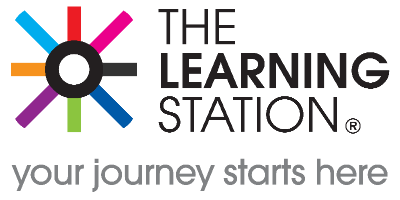https://www.thelearningstation.co.uk/online-functional-skills-in-maths-course
Baccalaureates may seem very similar to GCSE's, but they hold differences that are considered better at teaching students in a more all-round, breadth kind of way. In this article I will discuss them, and why you may choose a Baccalaureate degree vs. GCSE education.
What is a GCSE?
GCSE stands for the General Certificate of Secondary Education, and usually taken by pupils aged around 14-16 in secondary education. They are studied over the course of two years and after completion, students can decide whether to leave school education or continue on to do their A-Level qualifications. Although you do get to choose most of your GCSE options, there are some compulsory subjects which are known as the core subjects:
- Maths
- English Language
- English Literature
- Sciences (either single, double or triple sciences)
There are also some foundation subjects that must be taken:
- Computing
- Physical Education (PE)
- Citizenship
And then there are the optional GCSE subjects that vary from school to school, some may be restricted and some may not be offered at all. But in most cases you will need to take at least one of them:
- Arts
- Design and Technology
- Humanities
- Modern Foreign Languages
The current grading structure of GCSE's is as such (Highest grade to lowest): 9 - 8 - 7 - 6 - 5 - 4 - 3 - 2 - 1 Whereas the old and still referred grading structure is as follows: A* - A - B - C - D - E - F - G - U With 1 and U both being fail grades. I will refer to the new grading structure throughout this article. It is argued that completion of your GCSE's as a student is very important for future life choices. Your GCSE's may be called upon when you are looking to make choices about your further education. Certain universities will require a certain grade of a subject for the student to even be considered a place, they may want at least 5 5 - 9 grades for example. Factors like this may quickly determine which universities you get to go to, which is why GCSE's are always very much stressed upon for the student to do their best. Even some jobs may require that you have a minimum grade of certain GCSE subjects, such as at least a 5 in both English and Maths. If you don't happen to do too well in your GCSE's, it's not the end of your career life as you know it. There are still many options that are open to you even if you don't have the GCSE's you want. These may revolve around jobs that have less of an academic requirement. Jobs such as a Retailer, labourer, or even Executive roles.
What is a baccalaureate?
A baccalaureate (also known as an English Baccalaureate or EBacc) is a new performance indicator implemented by the UK government in 2010. It measures the percentage of students who achieve 5+ 5-9 (formerly, A*-C) grades in the traditional GCSE subjects:
- English
- Maths
- a Science
- either history or geography
- ancient or modern foreign language
Here you can see the addition of geography, history, and a foreign language. These were introduced to combat the perceived fall in the number of students studying foreign languages and sciences. There is also the removal of many optional, creative subjects such as Arts, and Design and Technology. With the introduction of Ebacc's has come a wave of protesting teachers that describe the change as "an attempt to steer all schools towards a narrow range of subjects". A large percentage of "non-Ebacc" teachers are increasingly fearing job insecurity due to their subjects being made redundant.
GCSE and Baccalaureate, which to choose?
Whilst GCSE's gives you a broad range of subjects, a lot of which is optional, the Baccalaureate has a much more focused approach that offers no options. If GCSE is still an option for you and there are certain subjects there that you like and feel would benefit you later in life, then this may be the option for you. When Ebacc becomes compulsory then you may lose the opportunity to study some of the subjects that you wanted. In terms of moving forward to university prospects, there are no specific requirements for students to have Ebaccs instead of GCSE's so there is no need to worry. Since both the Ebacc and GCSE's cover the important core subjects that universities look for there will be no change, possibly only for niche GCSE subjects that Ebacc's no longer has. In general, both standards have their positives and negatives but is largely affected by whether it is compulsory for you or if there are certain subjects that you may find interesting like the Functional Skills in Maths or maybe the Functional Skills in English Featured image: Pixabay



 Student Login
Student Login My Account
My Account